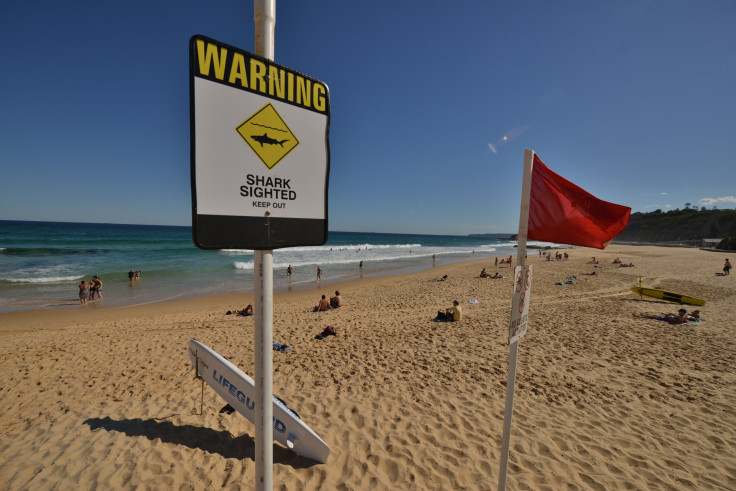Shark Mauls Surfer, Bites His Shoulder During Attack Off Australia's Avoca Beach

A shark attacked a 25-year-old surfer off a beach in Central Coast in Australia on Monday, leaving the victim with several puncture wounds to his shoulder. Local media reports said the man, a doctor, was surfing along with two other people at Avoca Beach when the shark mauled him.
The victim left the beach before ambulance crew arrived, a Surf Life Saving NSW spokeswoman told Australia's Daily Telegraph.
“He was paddling for a wave and didn’t get it and he was immediately attacked on the shoulder,” she said. “Luckily all three of them were doctors so they knew what to do. An ambulance was on scene but he decided to make his own way to hospital. Council Lifeguards have closed the beach and depending on what they want us to do we may deploy assets tomorrow and have a look around.”
Both Avoca beach and North Avoca beach are expected to remain closed until authorities rule out any further threat of a shark attack. Department of Primary Industries will assess the incident before announcing the reopening of the beaches.
Describing the incident that took place off the beach, a Central Coast Council spokeswoman reportedly said the victim was knocked off his board as the shark attacked and somehow managed to get back on his board and paddle ashore.
“He is going to be fine,” she added.
Lifeguards suspected the shark may have been attracted towards the shore because of a combination of warm ocean water, the location of the surfer in a deep channel and “a lot of fish” in the area.
Avoca Beach, which is a popular surf spot, has witnessed several shark attacks in the past. In October 2014, surfer Kirra-Belle Olsson was attacked by a shark in almost an identical position along the beach.
There have been only four cases of unprovoked shark attacks in New South Wales so far this year, according to data provided by Taronga, a non-profit organization supporting wildlife conservation in Australia.
Below are some tips as to how to avoid and survive a shark attack, courtesy Florida Museum of Natural History website.
1. Choose to swim in a group as sharks most often attack lone individuals.
2. Don't wander too far from the shore as it may be difficult to return fast for help in case a shark is spotted.
3. Avoid the water at night, dawn, or dusk as sharks are most active at these times.
4. In case of a cut, do not enter the water as blood attracts sharks.
5. Leave the water immediately if a shark is spotted.
6. Avoid going into waters containing sewage as it attracts bait fishes, which in turn attract sharks.
7. Don't splash a lot in the water. Erratic movements can attract sharks.
8. Avoid swimming towards a shark if it's seen in the water.
9. Do whatever it takes to get away after a shark attack.
© Copyright IBTimes 2024. All rights reserved.




















